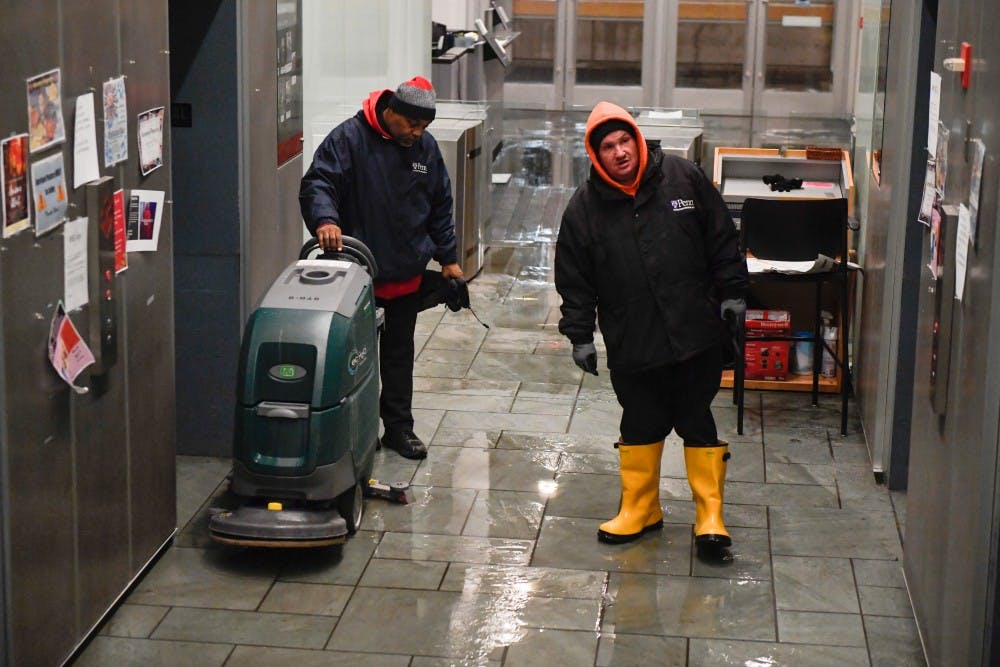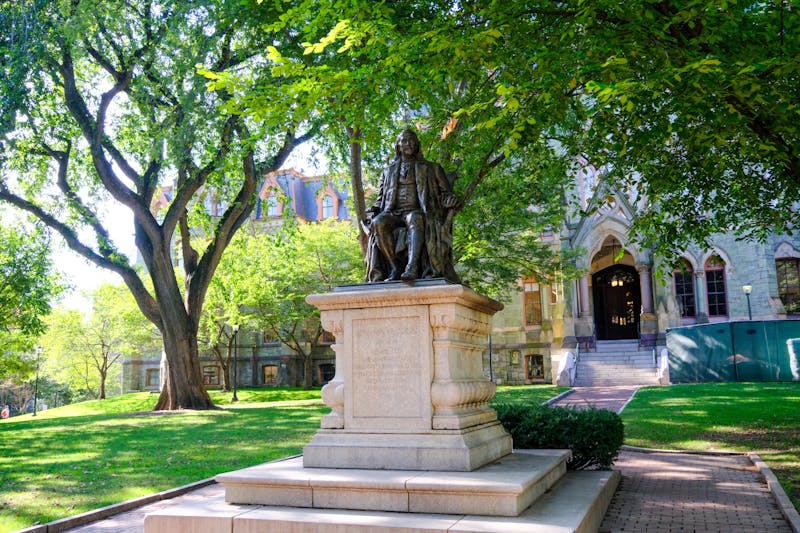
Facilities workers attempted to clean up the water after the lobby of Harrison College House flooded.
Credit: Chase SuttonTwo separate housing incidents last week struck the high rises. On Jan. 21, a pipe burst in Harrison College House, causing a sprinkler to go off. One day later, there was no hot water in Harnwell College House amid frigid temperatures.
Benedict Suplick, director of engineering and energy planning in the Operations and Maintenance department of Facilities and Real Estate Services, said both situations were unrelated and "one-offs" that were resolved in several hours. While both incidents were coincidental in their timing, the cold weather has led to FRES “keeping a better eye on systems,” Suplick said.
On the day of the pipe burst in Harrison, FRES received a call around 6:50 p.m. that a sprinkler went off in the entryway of Harrison, causing the fire alarm to go off. As students evacuated the building, water filled the floor of the building's front lobby. Suplick explained that there is a built-in mechanism that automatically sets off the fire alarm when a sprinkler is released and water starts to flow.
Both the company that manufactured the sprinkler head and emergency response teams were soon on-site and the situation was resolved around 10:30 p.m. that night. The building’s first floor and basement, which house common spaces and laundry rooms, were affected by the sprinkler incident.
Suplick said the cause of the Harrison incident was related to the cold weather. As students enter and exit the college house, the doors do not always latch fully, which led to cold air continuously being blown into the entryway. This caused parts of the sprinkler head to freeze and go off, Suplick said.
The company that manufactured the sprinkler head later replaced the affected head with a similar model. While Suplick said it is possible a similar situation could happen in the future given similar weather conditions, he “doesn’t anticipate the risk to be any worse than it’s been in the past.”
Between 8 and 9 a.m. the next day on Jan. 22, FRES received a call that the hot water in Harnwell was no longer working. A crew was then sent to check the building’s steam system, which controls hot water allocation for all college houses.
Suplick said the incident was not weather related, but was caused by a stuck control valve that was stopping steam from passing through. This valve was replaced by 10:10 a.m. and hot water was later restored by 2:53 p.m., according to an email sent to Harnwell residents by Residential Services Manager Alice Wittmer.
This steam first passes through a pressure-reducing station and is then used to heat water across the college houses. Harnwell’s particular pilot valve malfunctioned that day, affecting only Harnwell.
The cold weather related systems currently in place at Penn have been in use for around 10 years, dating from the last renovations on the high rises. The systems have a lifetime of about 15 to 20 years, Suplick said, adding that all systems are operational and working properly.
The Daily Pennsylvanian is an independent, student-run newspaper. Please consider making a donation to support the coverage that shapes the University. Your generosity ensures a future of strong journalism at Penn.
Donate






